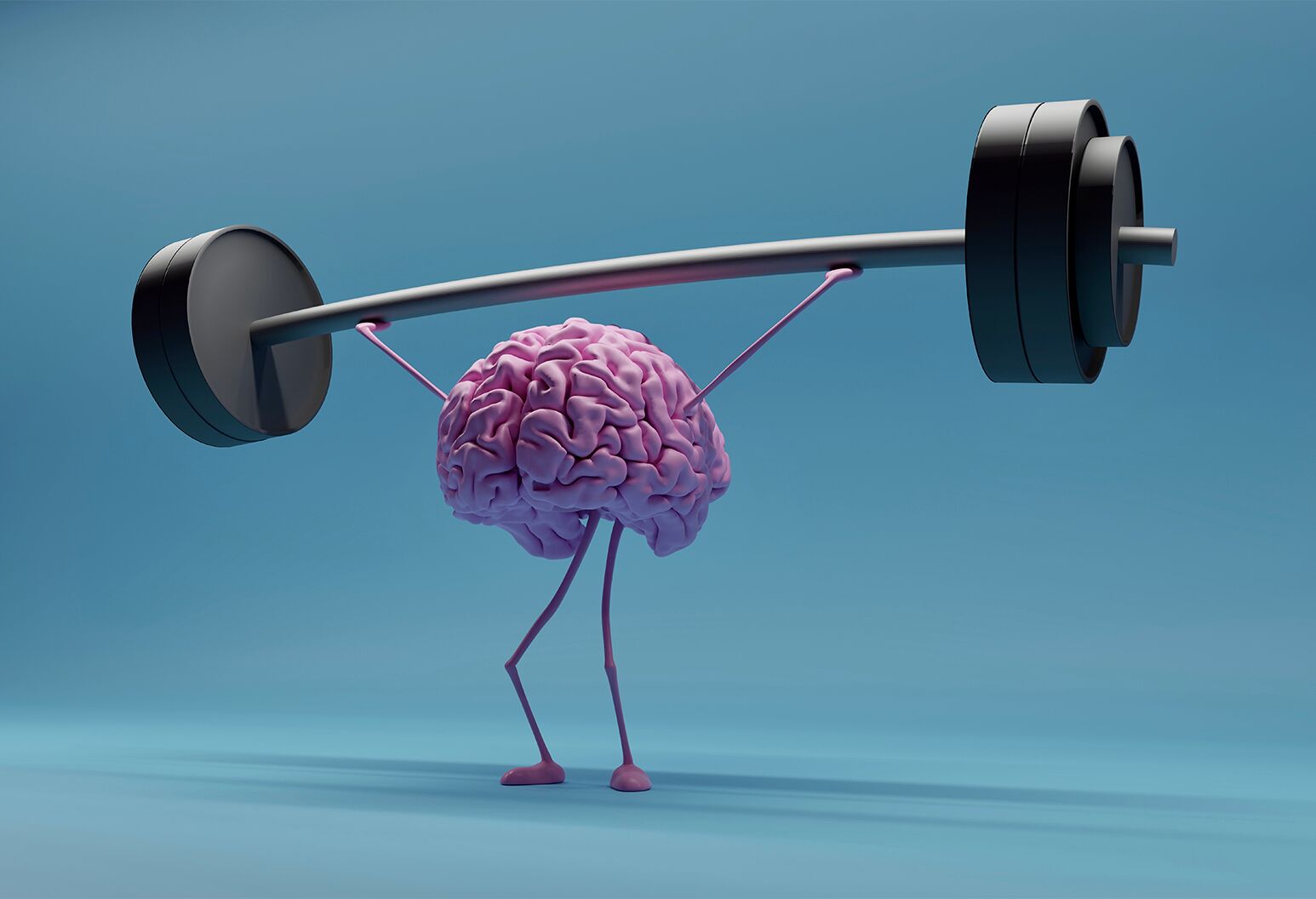brain/nerve health
How To Manage Migraines Without Meds

Keep your mind in top shape with these easy-to-follow tips from a neurologist.
4 min read
When it comes to keeping your mind limber, it can be difficult to know if you’re doing all that you can. But there’s an easy litmus test, because when your mind isn’t getting what it needs you can certainly feel it. Things like brain fog and having difficulty concentrating are all signs that your mind needs a little TLC. And while the brain is a complex organ, there are some basic, evidence-based steps that can protect and enhance your mind and improve cognitive function.
As a neurologist, here’s what I try to do to improve my mental strength and what may help keep yours sharp, too.
While you sleep the nerve cells in your brain are very busy communicating and reorganizing. This activity is essential to your overall cognitive health. But when sleep is disrupted or doesn’t last long enough, this vital process is disrupted, too. I do my best to fall asleep at the same time every night and try to stop eating and drinking a few hours before bed. Doing so makes it less likely that I’ll wake up in the middle of the night.
Of course, I don’t always succeed, and when that happens, I use the weekends to play catch-up and log some extra ZZ’s. You can’t skimp out on sleep over a period of weeks and then expect to get it all back on a single Saturday or Sunday, but I find it is possible when I am slightly sleep deprived to rest up a bit more over a few days and feel the positive effects.
You may be surprised to learn that hydration has a direct connection to brain function. Dehydration has been linked to short-term memory loss and prolonged dehydration can even cause brain cells to shrink. Drinking plenty of fluids and eating foods rich in water will greatly improve your mental performance, so be sure to make it a priority.
Learn what the experts do—sign up for The Well's newsletter today.
By providing your email address, you agree to receive email communication from The Well.
A caveat to the concept of drinking liquids during the day: This does not include caffeine. It’s easy to chalk up fatigue to needing more caffeine, but if you’ve already downed one or two cups of coffee then that energy dip is more often a sign of dehydration. Caffeine really is a double-edged sword.
As a headache specialist, I can tell you that there are benefits to caffeine when it comes to mental sharpness and protecting against certain degenerative cognitive conditions, but there is also a dependency issue with it. When you miss your usual cup, you may get a headache which then leads you to drink more caffeine later in the day. But doing that saturates the adenosine receptors in your brain, which are responsible for facilitating sleep. To avoid this, I stick to two 8-ounce cups of coffee and try to have them around the same time each day.
Just like exercising is important for your body, staying mentally active is essential for the mind. One of the most widely studied concepts in this area has been doing crossword puzzles to strengthen the mind. But doing any type of mental puzzle regularly will do the trick whether it’s sudoku, a card game, or something else.
Feeling involved and doing things outside of your mental comfort zone can reduce burnout, something that plays a large role in our mental facilities and overall well-being. If these feelings don’t come with your 9-to-5 job, look outside of that for volunteering opportunities or ways to get involved in your community that may help foster that.
Having a positive attitude is one of the best tools for staying sharp and mentally active. Luckily, research has found this can be achieved in several ways. To start, surround yourself with friends and family and/or take part in activities that give you a sense of achievement. Tackling a family hike in the woods is one example. It also helps to have things to look forward to, such as a vacation or wedding. There is even evidence that the anticipation of a vacation can boost happiness and mental strength.
Positive thinking can also happen when we take a moment to disconnect and give ourselves the ability to process information. Especially in the world today, there is so much obsessive news watching that it’s hard to critically think about what we’re absorbing. It’s important to know what’s going on but it’s equally important to take a break from scrolling on your phone or reading the news. Instead, take a few minutes to reflect, which can help improve your mood and mental dexterity.
The Well is Northwell Health’s commitment to the future of health care. In this time of information overabundance, much of which is inaccurate, unhelpful, or even difficult to understand, Northwell Health is on a mission to make a difference as an honest, trusted, and caring partner. The site connects with consumers to provide them with personalized content that reduces their stress, makes them laugh, and ultimately feel more confident and capable on their healthcare journey.